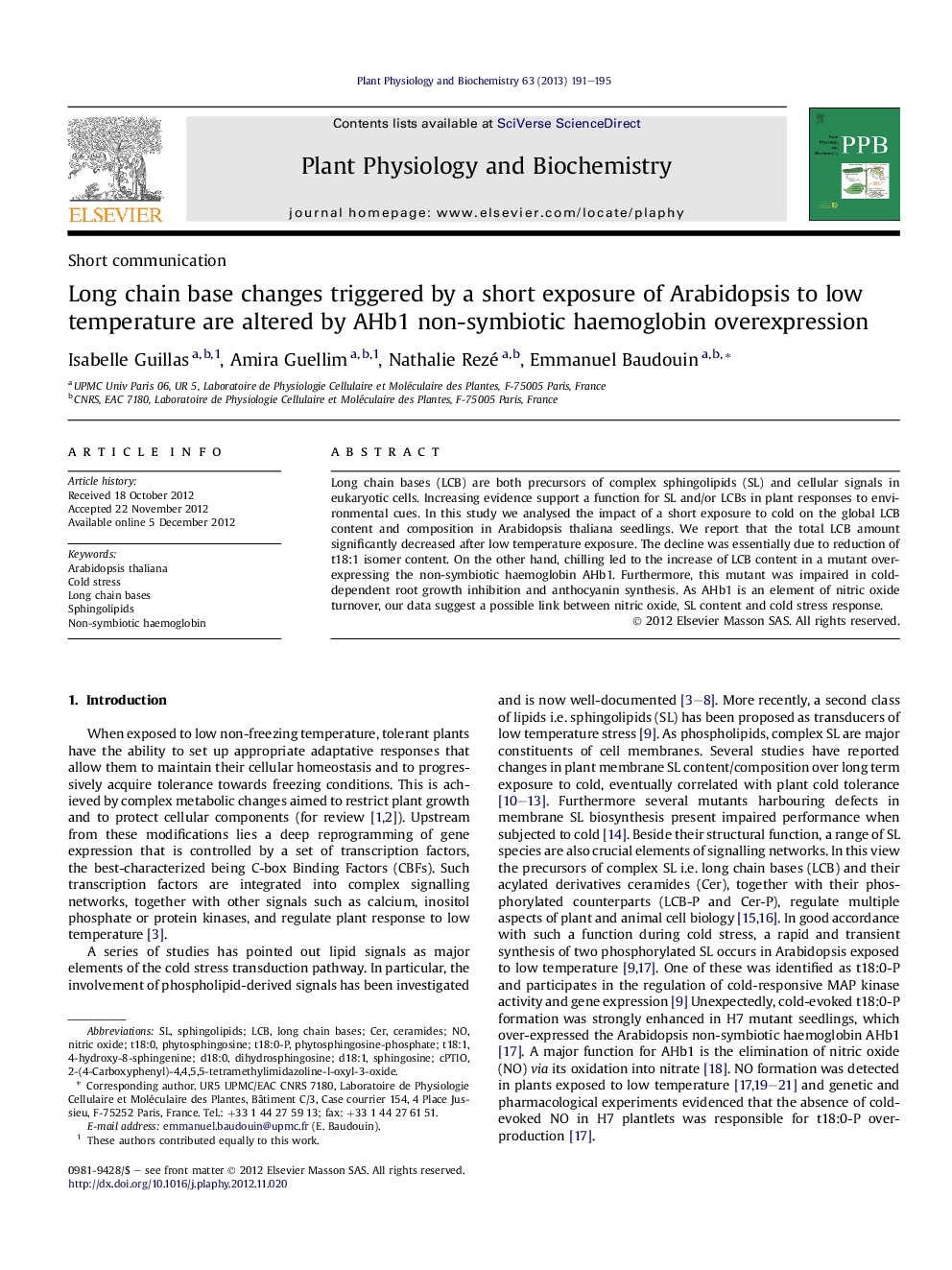| Article ID | Journal | Published Year | Pages | File Type |
|---|---|---|---|---|
| 2016063 | Plant Physiology and Biochemistry | 2013 | 5 Pages |
Long chain bases (LCB) are both precursors of complex sphingolipids (SL) and cellular signals in eukaryotic cells. Increasing evidence support a function for SL and/or LCBs in plant responses to environmental cues. In this study we analysed the impact of a short exposure to cold on the global LCB content and composition in Arabidopsis thaliana seedlings. We report that the total LCB amount significantly decreased after low temperature exposure. The decline was essentially due to reduction of t18:1 isomer content. On the other hand, chilling led to the increase of LCB content in a mutant over-expressing the non-symbiotic haemoglobin AHb1. Furthermore, this mutant was impaired in cold-dependent root growth inhibition and anthocyanin synthesis. As AHb1 is an element of nitric oxide turnover, our data suggest a possible link between nitric oxide, SL content and cold stress response.
► A short cold exposure lowers long chain base amount in WT Arabidopsis. ► Cold affects the amount of long chain bases engaged in complex sphingolipid. ► A mutant expressing AHb1 haemoglobin accumulates long chain bases after chilling. ► AHb1 overexpression impairs cold-triggered anthocyanin synthesis.
